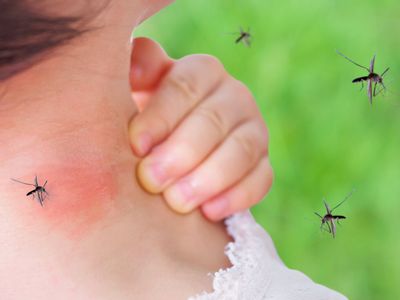Dengue
DENGUE
Dengue viruses are spread to people through the bite of an infected Aedes species (Ae. aegypti or Ae. albopictus) mosquito. Dengue is common in more than 100 countries around the world. Forty percent of the world’s population, about 3 billion people, live in areas with a risk of dengue. Dengue is often a leading cause of illness in areas with risk.
A mosquito-borne viral disease occurring in tropical and subtropical areas.
Those who become infected with the virus a second time are at a significantly greater risk of developing severe disease.
Symptoms include high fever, headache, rash, and muscle and joint pain. In severe cases, there is serious bleeding and shock, which can be life-threatening.
Treatment includes fluids and pain relievers. Severe cases require hospital care.

Symptoms
The most common symptom of dengue is fever with any of the following:
- Nausea, vomiting
- Rash
- Aches and pains (eye pain, typically behind the eyes, muscle, joint, or bone pain)
Treatment for Dengue Fever
There is no specific medicine to treat dengue infection. If you think you may have dengue fever, you should use pain relievers with acetaminophen and avoid medicines with aspirin, which could worsen bleeding. You should also rest, drink plenty of fluids, and see your doctor. If you start to feel worse in the first 24 hours after your fever goes down, you should get to a hospital immediately to be checked for complications.
